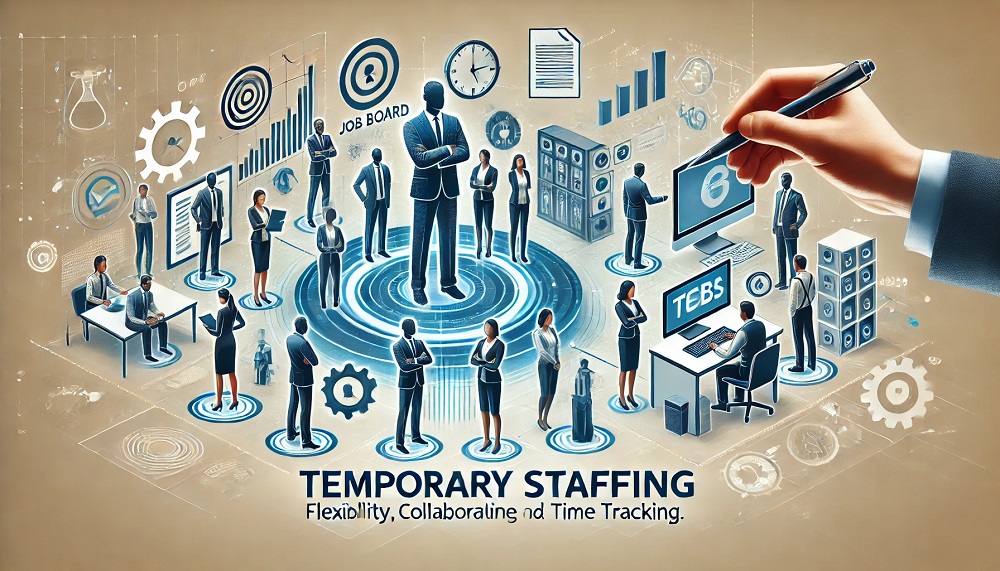- Temporary staffing is a flexible and efficient approach to addressing fluctuating staffing requirements. It allows organizations to quickly adapt to changes in workloads, market demands, or special projects without the long-term commitment associated with permanent hires. Here are some key aspects of temporary staffing:
- Staffing Agencies: Temporary staffing is usually facilitated through staffing agencies. These agencies maintain a pool of pre-screened, qualified candidates, making it easier for clients to find the right talent quickly.
- Short-Term Solutions: Temporary staffing is ideal for filling short-term or seasonal positions, meeting unexpected surges in demand, or providing coverage during employee absences.
- Diverse Skill Sets: Staffing agencies can provide temporary workers with a wide range of skills and experience levels, making it possible to find the right match for specific job requirements.
- Benefits of Temporary Staffing:
- Temporary staffing offers several advantages for both employers and employees:
- Flexibility: Temporary staffing allows organizations to adapt to changing business needs, scaling their workforce up or down as necessary, reducing labor costs during slow periods, and avoiding the financial and legal commitments of permanent employment.
- Quick Response: Staffing agencies can rapidly supply qualified workers, enabling employers to address urgent staffing needs and time-sensitive projects efficiently.
- Cost-Efficiency: Employers can save on recruitment and onboarding costs associated with permanent hires, as well as benefits and overhead expenses.

- Reduced Risk: Temporary employees are often employed by the staffing agency, which means the agency manages payroll, benefits, and compliance, reducing legal and administrative burdens for the client.
- Access to Specialized Skills: Employers can access a diverse talent pool with specialized skills, allowing them to bring in experts for specific projects or roles.
- Trial Period: Temporary staffing can serve as an extended interview process, giving employers the opportunity to evaluate a worker’s performance before making a permanent offer.
- Increased Productivity: Temporary workers can help distribute the workload during peak periods, increasing productivity and preventing employee burnout.
- Reduced Training Time: Many temporary workers are already experienced in their roles, requiring minimal training and supervision.
- Employee Benefits: Temporary employment can provide workers with valuable experience, networking opportunities, and a bridge to permanent positions, making it a mutually beneficial arrangement.
